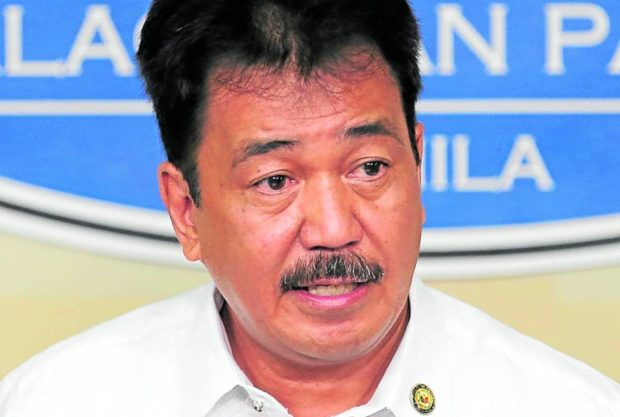
Prospero de Vera III
MANILA, Philippines — The chair of the Commission on Higher Education (CHEd) and officials and teachers of the University of the Philippines (UP) Diliman are engaged in a sharp exchange over the removal of reading materials deemed “subversive” from the libraries of certain state universities and colleges (SUCs).
To the call of CHEd Chair Prospero de Vera III on Tuesday night that the SUCs’ actions be respected “in the spirit of mutual respect and proper governance of their institutions,” the Congress of Teachers and Educators for Nationalism and Democracy (Contend) UP quickly countered that he was “effectively sanctioning book purging” and “misrepresenting academic freedom to include acts of book censorship.”
De Vera had defended the earlier decision of Kalinga State University, Isabela State University and Aklan State University to remove the “subversive” reading materials in reaction to the statement issued last week by UP Diliman officials led by Chancellor Fidel Nemenzo condemning it.
Nemenzo and the others said the removal of the books and documents was in opposition to UP’s mission to teach and research freely and promote academic freedom. “We must protect our schools and ensure that these will remain sanctuaries of free thinking,” they said.
De Vera said he knew many higher education institutions (HEIs) were critical of UP Diliman officials’ policies and approach in running the campus, “but [the HEIs] are issuing statements out of mutual respect for the governance of individual public universities.”
“I urge UP Diliman officials to do the same. It would be best for the Chancellor of UP Diliman and other officials to be more prudent, circumspect, respectful and discerning in issuing statements, especially involving the exercise of academic freedom of other [HEIs],” he said.
CHEd memorandum
But De Vera omitted mention of the fact that CHEd’s regional office in the Cordillera released on Oct. 21 Memorandum No. 113 encouraging HEIs to participate in the “region-wide removal of subversive materials both in libraries and online platforms”—a move that students and rights groups called a “brazen attack on academic freedom.”
A network of Filipino teachers, researchers, school administrators and education professionals on Wednesday called out De Vera for “justifying the removal of so-called subversive books from libraries.”
Ramon Guillermo, lead convener of the Academics Unite for Democracy and Human Rights and a former UP faculty regent, said that when De Vera proposed in January the formation of a panel of experts that would redefine academic freedom, “we found it laughable because this is already enshrined in the 1987 Constitution.”
“Now it has become clear that the intention is to repress and limit the scope of academic freedom to whatever is acceptable to the state,” Guillermo said.
The alliance launched on Monday a digital archive of progressive publications, which, it said, would serve as a “free and easily accessible resource of endangered books and materials” that the government deemed “subversive” and “mentally unhealthy.”
On Wednesday, Contend spokesperson Lakan Umali said De Vera was “diverting the issue into a mere administrative matter, feigning mutual respect for the governance prerogatives of individual public universities.”
Umali added: “Book purging cannot be an exercise of academic freedom, which is based on the free and fair exchange of ideas, and not on their censorship. The purging of books from public libraries is one of the severest forms of censorship, and De Vera’s statement effectively sanctions it.”
The reading materials removed from the libraries of the three universities included papers on the peace negotiations between the government and communist rebels and books authored by Communist Party of the Philippines founding chair Jose Maria Sison.
Book donations
In Iloilo, UP Visayas accepted books and other reading materials donated by the Western Visayas Regional Task Force to End Local Communist Armed Conflict (RTF-Elcac).
But Chancellor Clement Camposano maintained his earlier position that UP Visayas would not remove books and other materials considered subversive by the counterinsurgency task force.
On Oct. 29, Camposano hosted an RTF-Elcac delegation led by Anna Liza Umpar, Western Visayas director of the National Intelligence Coordinating Agency. The visitors were taken to the research facilities on the main campus in Miag-ao town and briefed on the programs and activities of UP Visayas, according to its press statement.
There was also a dialogue that included a presentation by the task force of its mandate as well as testimonies of former communist rebels.
The donated reading materials included a coffee table book published by the National Commission on Indigenous Peoples.
“The one thing that defines UP is that we are open to the free exchange of ideas. This engagement should be seen in that light. We… may have different views, but UP is committed to the spirit of dialogue,” Camposano was quoted in the statement as saying.
He earlier said in a Facebook post that not a single Marxist book or any other progressive reading material would be removed from the UP Visayas library.
But student councils and organizations on campus issued a joint statement questioning the hosting of regional leaders of the National Task Force to End Local Communist Armed Conflict, which, they said, had “endangered the lives of students and faculty that have expressed dissent to the Duterte regime.”
In response, Camposano said engaging with the task force was part of UP Visayas’ mandate to be “open to all ideas and views.“